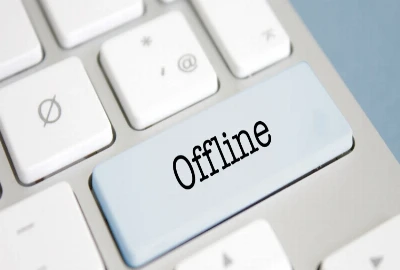Sincerity is Scary: Why Irony Feels Safer Than Vulnerability

We live in an age where it feels easier to post a meme than to say how we really feel. From online banter to face-to-face conversations, irony often dominates the way we communicate. It’s not that sincerity has disappeared—it’s that sincerity is scary.
Why? Because being genuine means exposing parts of ourselves that aren’t polished, witty, or protected by humor. Irony, on the other hand, provides a buffer. It allows us to participate in cultural conversations, relationships, and even personal storytelling without putting our true selves fully on display.
This blog explores why irony feels safer than vulnerability, the cultural forces that reward ironic detachment, and actionable ways to embrace sincerity in a world that often treats it as risky.
Why Sincerity Feels So Scary
At its core, sincerity is about authenticity. It means speaking honestly, expressing emotions directly, and sharing parts of ourselves without filters. But while sincerity builds intimacy and trust, it also carries risks.
Fear of Judgment
When you express sincerity, you give others the opportunity to reject not just your words, but you as a person. Irony provides a safety net—if people don’t respond well, you can always say you were “just joking.”
Cultural Emphasis on Cool Detachment
Modern internet culture prizes quick wit, sarcasm, and a sense of “being in on the joke.” Sincerity, by contrast, risks being seen as naïve or cringe.
Emotional Exposure
Vulnerability requires opening up about feelings like love, sadness, or hope. These emotions can feel overwhelming to share without the armor of irony.
Past Experiences
Many people have learned the hard way that being too sincere invites mockery or misunderstanding. Irony becomes a defense mechanism against repeating that pain.
Keywords: fear of vulnerability, authenticity, ironic detachment, emotional exposure.

Irony as a Cultural Armor
Irony isn’t just an individual preference—it’s a cultural language.
On Social Media: Platforms like Twitter (now X) reward witty one-liners, sarcasm, and ironic memes over heartfelt posts.
In Entertainment: Popular TV shows, from The Office to Rick and Morty, lean heavily on self-aware humor and meta-commentary.
In Everyday Conversation: Phrases like “no big deal” or “lol just kidding” soften genuine statements, allowing people to backtrack from vulnerability.
This “irony-first” culture protects us from embarrassment but also creates a barrier to deeper connection. When everyone is ironic all the time, sincerity starts to feel almost radical.

The Problem With Always Choosing Irony
Irony has its uses—it can diffuse tension, highlight absurdities, and bond people through shared humor. But relying on it too heavily comes with costs:
Shallow Connections: Irony keeps relationships at the surface level, preventing deeper intimacy.
Emotional Loneliness: Without sincerity, people can feel unseen or unheard, even in social groups.
Stalled Growth: Vulnerability is essential for learning, healing, and evolving. Irony blocks those opportunities.
Performative Identities: Constant detachment can create a persona that’s entertaining online but disconnected from authentic self-expression.
Keywords: emotional loneliness, shallow connections, performative identity, overuse of irony.

How to Practice Sincerity Without Feeling Exposed
The good news? It’s possible to be more sincere without leaving yourself completely unprotected. Here are some actionable strategies:
Start Small
Share genuine thoughts or feelings in low-risk situations. For example, compliment a friend sincerely instead of making a joke.
Use “I” Statements
Communicate emotions directly by owning them. Instead of saying, “That’s lame,” try, “I feel disappointed about this.”
Embrace Imperfection
Sincerity doesn’t mean perfect eloquence. Allow yourself to express feelings without needing them to sound polished or clever.
Balance Humor With Honesty
You don’t have to abandon irony altogether—just make room for sincerity alongside it. For instance, pair a light joke with a genuine statement.
Practice Vulnerability With Trusted People
Choose safe spaces—close friends, supportive communities, or journaling—as practice grounds for expressing yourself sincerely.
Keywords: practice vulnerability, self-expression, emotional honesty, safe spaces.

Case Study: The Rise of “Cringe” Culture
One major reason sincerity feels scary is because of the internet’s obsession with labeling things as “cringe.” Sharing a heartfelt poem, an earnest opinion, or even a sincere compliment online can quickly attract mockery.
But here’s the paradox: what gets called cringe is often what’s most authentic. As culture shifts, many creators and communities are reclaiming “cringe” as a badge of honor, choosing sincerity over ironic distance. Movements like “being cringe but free” highlight the value of showing up as your true self, even if it feels embarrassing.
The Future of Sincerity in a Post-Ironic World
We may be approaching a cultural turning point. After years of heavy irony, there’s growing appetite for authenticity. Younger generations, in particular, are gravitating toward platforms and creators who value raw honesty over carefully crafted irony.
Whether it’s BeReal’s unfiltered photo drops or TikTok creators sharing vulnerable life updates, sincerity is making a comeback. The shift suggests that while sincerity is scary, it may also be the key to cutting through digital noise and building more meaningful relationships.





